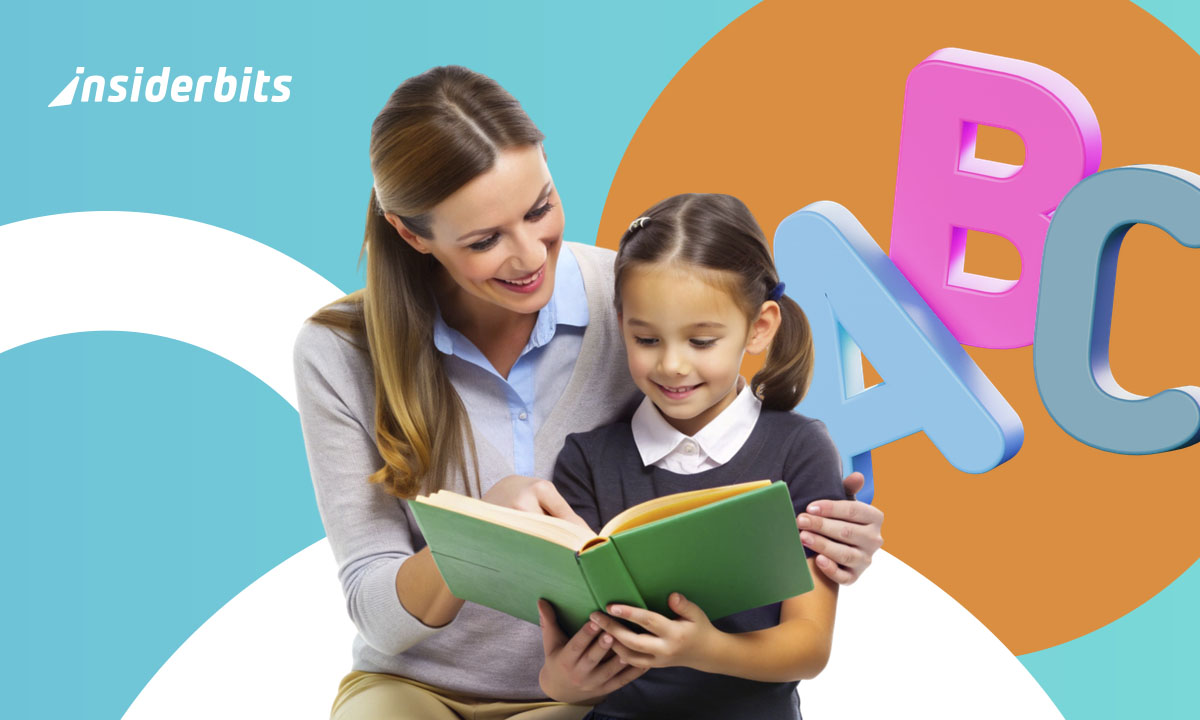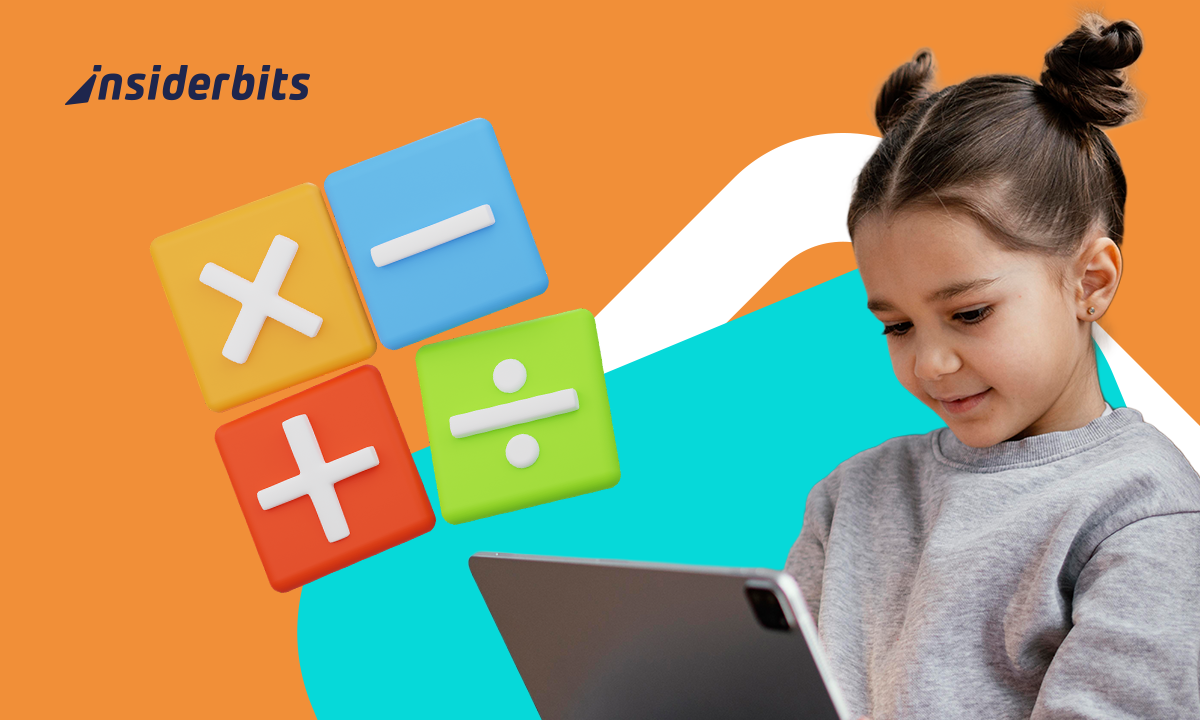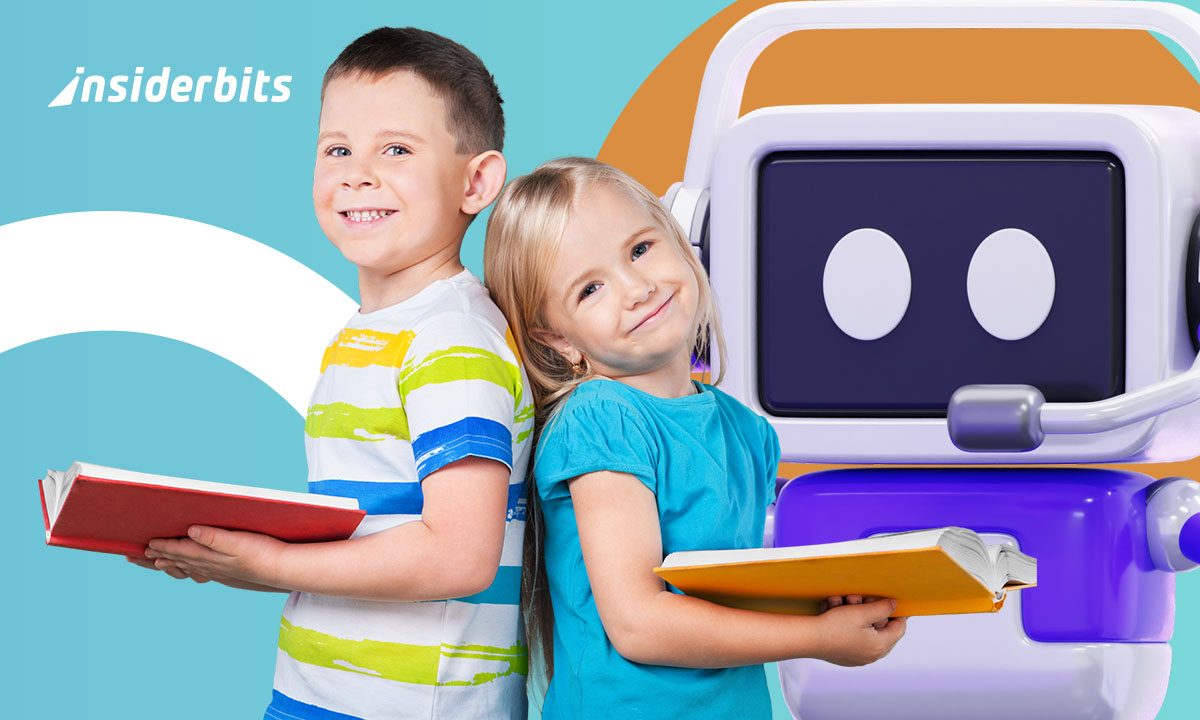With the right app, the ability to teach new words is not an exhausting task anymore. Through some gamified tools, children can expand their vocabulary through short and focused sessions that fit naturally into everyday routines without losing many hours in endless repetition. The key is consistency over intensity. We’ll show you how 15 minutes a day of playful exposure can help solidify new terms through spaced repetition and visual cues.
This Insiderbits guide presents apps that make vocabulary practice easy to manage and genuinely fun, putting an end to exhausting attention spans or creating resistance. These tools can be used after school or during screen time, each one delivering different results through simplicity and creativity.
- Top 10 Educational Apps for Adults
- Top Educational Platforms for Virtual Classrooms
- Transforming Classrooms: Best AI for Educators
These apps will teach your kid new words in just 15 minutes a day
Below, we highlight how three apps approach this goal with unique methods that adapt to different learning styles.
Lingokids – Play and Learn
First of all, Lingokids (iOS/Android) is mainly known for introducing new words gradually, using themed modules to group vocabulary in meaningful ways.
Consequently, children who usually need this kind of content engage with each term through songs, then trace letters to reinforce recognition, and later revisit the same word in a brief story or activity.
Lastly, Lingokids also promotes natural repetition. A word learned in one mini-game will reappear in another context days later, helping reinforce memory through spaced exposure.
4.3/5
Word Tag
Secondly, Word Tag (iOS/Android) is the app that transforms vocabulary into an adventure.
Children love this app because it allows users to select characters, move through narrative landscapes, and encounter new words embedded in the environment.
Then, every challenge completed unlocks a term, which is then used again as the story progresses.
The vocabulary isn’t random. Each word is placed intentionally within context, encouraging emotional connection and deeper comprehension.
Ultimately, what sets this app apart is that the game structure creates a feedback loop where children feel motivated to keep playing because each word gained has a purpose within the story.
4.4/5
Duolingo ABC
Duolingo is one of the most well-known apps to learn languages. However, Duolingo ABC (iOS/Android) simplifies word learning through brief, animated lessons that double as early reading practice.
Each session presents two or three new words alongside a short story or phonics activity, designed for kids just beginning their literacy journey.
That said, children explore words through listening, repeating, and dragging letters, methods that strengthen vocabulary while reinforcing sound-letter connections.
The five-minute format is ideal for preschoolers and kindergartners. It introduces just enough content to spark learning, then ends before attention fades.
4/5
Why micro-learning boosts vocabulary retention
Micro-learning is a good practice to boost vocabulary retention because it builds memory gradually.
Therefore, instead of trying to teach a lot at once, it delivers small portions of information in consistent doses, allowing the brain to absorb and retrieve words more effectively over time.
For instance, each lesson in Duolingo ABC introduces just a few words, and makes users revisit them in different contexts across several days.
Lingokids also uses spaced repetition, but enhances it with multiple learning modes. After that, the word becomes familiar through playful exposure rather than conscious memorization.
In summary, what keeps kids motivated are brief and fun learning sessions that avoid cognitive fatigue.
Gamified learning: fun without overstimulation
When done well, gamification enhances learning by turning goals into games, without turning screens into noise.
Gamified learning rewards curiosity, helping kids build confidence as they progress through short challenges with clear outcomes.
Word Tag, and other apps that teach new words through an adventure, uses character-driven storytelling to anchor vocabulary in real contexts.
The balance between story and game is what keeps them engaged without sensory overload.
Therefore, well-designed gamification keeps attention on the words themselves. It motivates through progress and discovery, ensuring that vocabulary remains central to the experience rather than buried under layers of digital noise.
Tips to build a strong daily language habit
A language habit is all about building vocabulary. When learning happens every day in small doses, it becomes part of a routine rather than a task. Repetition becomes familiar, and kids begin to anticipate their favorite learning moments.
Start with a fixed time because consistency helps the brain prepare for learning, especially when the sessions are short and predictable. Just 10 to 15 minutes daily is enough to make progress visible.
Also, give your child ownership of the process to avoid boredom. If you let them choose the topic of the day or pick a favorite mini-game, it will help too.
Lastly, reinforce what they’ve learned by repeating words later in the day.
Ultimately, language grows through use, and small real-world reminders make new vocabulary stick even faster.
Best age groups for word learning apps
Even though all of these apps listed are really good to teach new words, the right vocabulary app depends on the learner’s age and cognitive stage.
Before anything, you need to choose an app that matches your child’s readiness to ensure they stay engaged and don’t feel overwhelmed by vocabulary that’s too advanced.
Duolingo ABC, for example, was designed specifically for preschoolers and early elementary students.
With calm supportive narration, and gentle phonics instruction, it introduces vocabulary naturally while laying the groundwork for early literacy.
Meanwhile, Lingokids targets ages 4 to 8, combining playful interactions with a broader vocabulary range.
The “all-gamified” Word Tag is ideal for older kids, around 7 to 10, especially those who enjoy reading and creative play.
It offers more advanced words, longer sentences, and gameplay that introduces vocabulary through decision-making and consequence-driven storytelling.
Matching the app to your child’s stage helps maintain interest and allows vocabulary growth to unfold at a pace that feels rewarding rather than frustrating.
Related: Empower young readers at home with free apps!
Enjoyed this article? Save the Insiderbits blog to your favorites for the latest tools, creative tech tips, and photo editing breakthroughs.





